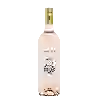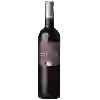
Château de BeaupréCoteaux d'Aix-en-Provence Blanc
This wine generally goes well with vegetarian, poultry or rich fish (salmon, tuna etc).
Food and wine pairings with Coteaux d'Aix-en-Provence Blanc
Pairings that work perfectly with Coteaux d'Aix-en-Provence Blanc
Original food and wine pairings with Coteaux d'Aix-en-Provence Blanc
The Coteaux d'Aix-en-Provence Blanc of Château de Beaupré matches generally quite well with dishes of rich fish (salmon, tuna etc), shellfish or sweet desserts such as recipes of pasta with tuna and tomato sauce, shrimp marinade or king's cake with frangipane.
Details and technical informations about Château de Beaupré's Coteaux d'Aix-en-Provence Blanc.
Discover the grape variety: Maturana blanca
A very old Spanish grape variety, particularly known in the Rioja region. It can be found in Italy, Portugal, Mexico, etc. In France, it is practically unknown. D.N.A. analyses have shown that it is not related to Maturana Tinta de Navarrete.
Last vintages of this wine
The best vintages of Coteaux d'Aix-en-Provence Blanc from Château de Beaupré are 2018
Informations about the Château de Beaupré
The Château de Beaupré is one of of the world's greatest estates. It offers 15 wines for sale in the of Coteaux d'Aix-en-Provence to come and discover on site or to buy online.
The wine region of Coteaux d'Aix-en-Provence
Côteaux d'Aix-en-Provence is one of the main French appellations in the Provence wine region, located in the extreme southeast of the country. It is the second largest appellation in the region, with about 4,000 hectares North and west of Aix-en-Provence - the town from which it takes its name. The area also bears the tiny title of AOCPalette. The Côteaux d'Aix-en-Provence appellation was first introduced as a VDQS in 1956, having been informally known as Côteaux du Roy René (René d'Anjou being a 15th century French king famous for his love of wine and the Vine).
The wine region of Provence
Provence is a wine region in the far southeast of France, best known for the quality (and quantity) of its rosé wines and for its Warm, mild Climate. The modernization that is taking place in many of the traditional wine regions of southern France has not yet taken place to the same extent in Provence, but there are Clear signs of change. The region's Grape varieties, in particular, have come under scrutiny in recent decades. Traditional varieties such as Carignan, Barbaroux (Barbarossa from Sardinia) and Calitor are being replaced by more commercially viable varieties such as Grenache, Syrah and even Cabernet Sauvignon.
The word of the wine: Honest
A simple and pleasant wine, without any great quality and without any defects.














